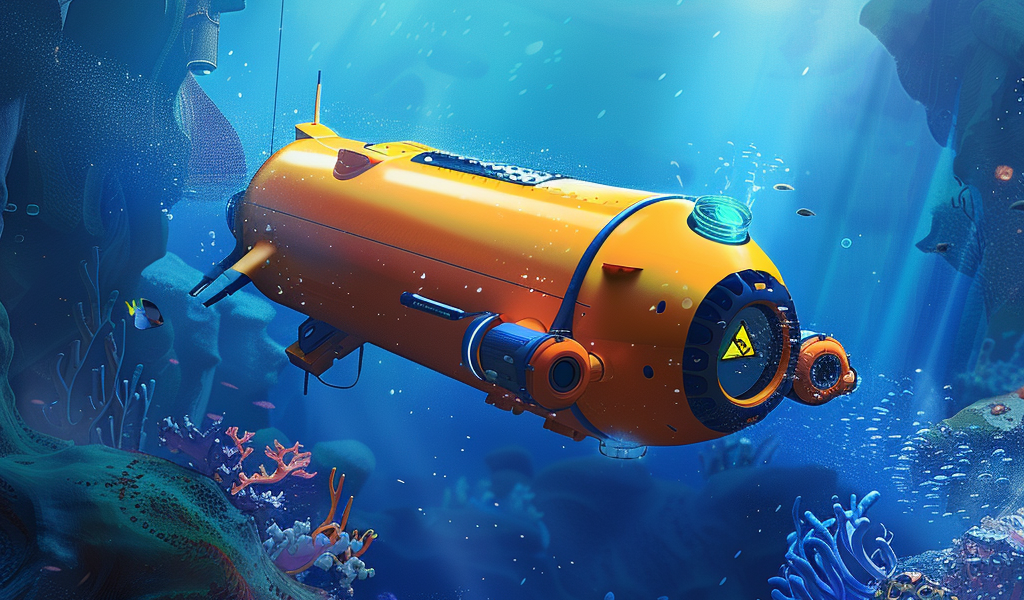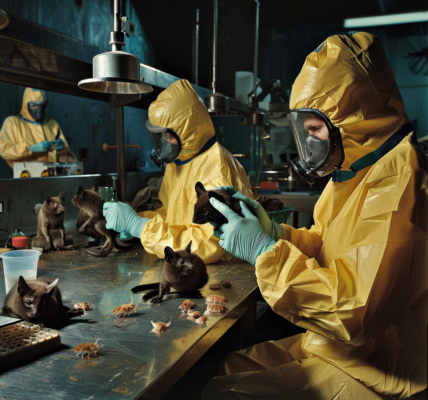In a significant advancement for marine biology, researchers from Tianjin University have successfully developed China’s first autonomous underwater vehicle (AUV) specifically designed for deep-sea microbial sampling. This groundbreaking vehicle is set to revolutionize the way scientists explore and understand the depths of the ocean.
The AUV has undergone rigorous testing in the South China Sea, where it has demonstrated its ability to perform in-situ sampling at depths of less than 1,000 meters. This capability allows for the high-fidelity preservation of deep-sea microbial genes, a crucial aspect for studying the diverse life forms that inhabit these extreme environments.
Experts from the Laoshan Laboratory recently reviewed and approved the project, acknowledging its potential to fill significant gaps in marine research. The deep sea is known to be the largest habitat on Earth, teeming with undiscovered microbial species and untapped resources. However, its unique conditions—characterized by high salinity, extreme pressure, low temperatures, and nutrient scarcity—have made it a challenging environment for traditional sampling methods.
Conventional ship-based techniques often struggle with issues such as sample contamination, degradation, and alterations to nucleic acid structures. These challenges are exacerbated by the inefficiencies and high costs associated with manual sampling procedures. In contrast, the newly developed AUV transitions sampling from localized, single-point operations to regional, multi-point autonomous missions, significantly enhancing the efficiency of data collection.
The AUV is equipped with sophisticated deep-sea sampling devices and environmental sensors, allowing for seamless integration of sampling, preservation, and nucleic acid preparation. This innovative approach not only improves sample quality but also reduces the time required for collection, thereby accelerating the pace of marine microbial habitat research.
According to the review panel, the AUV’s technical specifications, including maximum sampling depth, number of samples collected, and maximum single filtration volume, have reached international leading levels. This achievement positions China at the forefront of marine microbial research, providing valuable genetic data that can aid in the discovery of new marine microbial species.
Understanding the patterns and evolutionary mechanisms of marine microbial diversity is crucial for various ecological studies, including the investigation of the microbial carbon pump and ocean carbon sequestration processes. The research team at Tianjin University aims to further develop technologies for deep-sea microbial sampling and metagenomic analysis, enhancing their capabilities in this vital field.
The implications of this research extend beyond mere academic interest; they hold the potential to unlock new resources and insights into the ecological balance of our oceans. As the world’s oceans face increasing threats from climate change and pollution, understanding the microbial communities that inhabit these waters becomes ever more critical.
The autonomous underwater vehicle represents a leap forward in our ability to explore and document the hidden worlds beneath the waves. By providing researchers with the tools they need to conduct comprehensive studies of deep-sea ecosystems, this innovation paves the way for future discoveries that could reshape our understanding of marine biology and ecology.
As researchers continue to refine the AUV’s technologies and methodologies, the future of deep-sea exploration looks promising. The potential for new discoveries in microbial diversity and the ecological roles these organisms play in ocean health could have far-reaching consequences for both science and environmental conservation efforts.





